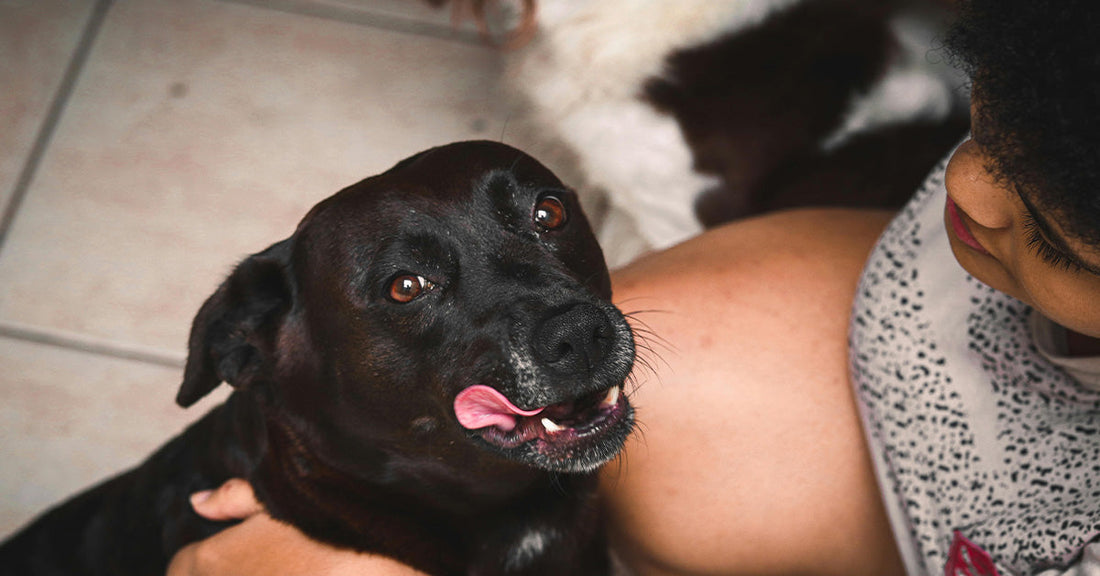Judge Declares Dogs Are Immediate Family in Landmark Ruling
Matthew Russell
In a decision that could reshape how the law views companion animals, a Brooklyn judge has ruled that dogs can be considered immediate family members—not just property. The ruling stems from a tragic case involving Duke, a dachshund struck and killed by a car in 2023, while out walking with his owner’s mother, Nan DeBlase, according to Time Out.
Supreme Court Justice Aaron Maslow’s decision allows Nan to pursue compensation typically reserved for those who witness a close relative’s injury or death. This includes claims for emotional distress under New York’s “zone of danger” doctrine, which until now had been limited to human family members.
“This Court fails to see why a beloved companion pet could not be considered ‘immediate family,’” Maslow wrote in his ruling.

A Brooklyn judge ruled dogs can be considered immediate family.
Duke’s Death and the Legal Turning Point
Duke was just four years old when a driver ran a stop sign, made an abrupt left turn without signaling, and hit the dog, who was on a leash held by Nan. Video footage from the intersection confirms she had paused to check traffic before crossing.
“It was very traumatic, extremely,” she later told the New York Post. “I mean, I was hysterical when it happened.”
Nan and her son, Trevor DeBlase, sued the driver, Mitchell Hill, for negligent driving and for the anguish caused by Duke’s death. While Trevor wasn’t present at the scene and is limited to recovering Duke’s estimated value of $1,500 and veterinary expenses, Nan’s direct involvement enabled her to seek broader damages.
Justice Maslow ruled that Nan’s proximity to the tragedy and her physical connection to Duke via the leash made her eligible for compensation previously available only to human relatives. As the Gothamist reports, this marked a legal first for New York, treating a pet as more than personal property under tort law.

This expands legal protections beyond the traditional view of pets as property.
A Dog in a Tux, a Family in Mourning
Duke wasn’t just a pet. He was family. Just months before the accident, he walked down the aisle at Trevor’s wedding in a green tuxedo. Trevor’s Instagram tribute included heartbreaking footage of the incident.
“I loved this dog more than life itself and things will never be the same without him,” it read.
The emotional toll continues. Nan, who now owns a poodle mix named Cashew, says the trauma lingers. “They have a little shrine in their house dedicated to him,” she told the New York Post. “You can’t fill that spot, but you can try.”

Animal rights groups hailed the ruling as a breakthrough.
Law Reflects Changing Norms
Maslow acknowledged the ruling is a narrow one—limited to dogs struck while on a leash. But he emphasized that legal interpretations must evolve with societal values. In his opinion, he cited laws passed in New York over the past few decades that already begin to treat pets as family. This includes the 2021 law requiring courts to consider a pet’s best interest during divorce proceedings and a 1996 law allowing pet trusts for their care, according to Brooklyn Magazine.
Animal rights advocates see the ruling as a breakthrough.
“It serves the interest of justice to recognize that Duke was not a legal ‘thing,’” said Christopher Berry of the Nonhuman Rights Project in an interview with the Gothamist. “He was a member of the family.”
Other groups, including the Legal Action Network for Animals, praised Maslow for what they called a courageous and wise decision.

New York law already allows pet trusts and custody considerations.
Industry Backlash and Judicial Caution
Not all responses have been positive. Organizations like the American Kennel Club and the New York State Veterinary Medical Society raised concerns that expanding liability for pet deaths could lead to sweeping financial consequences across the pet industry. But Maslow dismissed these concerns as overstated. As Time Out reported, he intentionally crafted the ruling to avoid opening a floodgate of lawsuits, limiting its applicability to dogs on leashes during traffic incidents.
Still, the symbolic weight of the ruling is enormous. It reflects a growing cultural understanding: pets aren’t property. They’re companions, confidants, and family.
Legal Precedent, Emotional Impact
The decision has paved the way for a trial that could deliver unprecedented compensation to Nan for the emotional distress caused by Duke’s death. For Trevor, who was denied the same because he wasn’t present, the win is bittersweet.
As he told Secret NYC, “The emotional heartache my family has collectively felt these past 3 years cannot be quantified with a dollar amount, but knowing that something good has come out of this tragedy brings me some kind of solace.”
Trevor now owns another dachshund, Cooper, but still mourns Duke deeply. As his mother told the New York Post, “They miss Duke so much… Keep your eyes open — stop being distracted. You gotta pay attention, it’s very sad.”
Whether or not Duke’s case leads to more sweeping reforms, one truth has been cemented by law in Brooklyn: dogs can be family.

